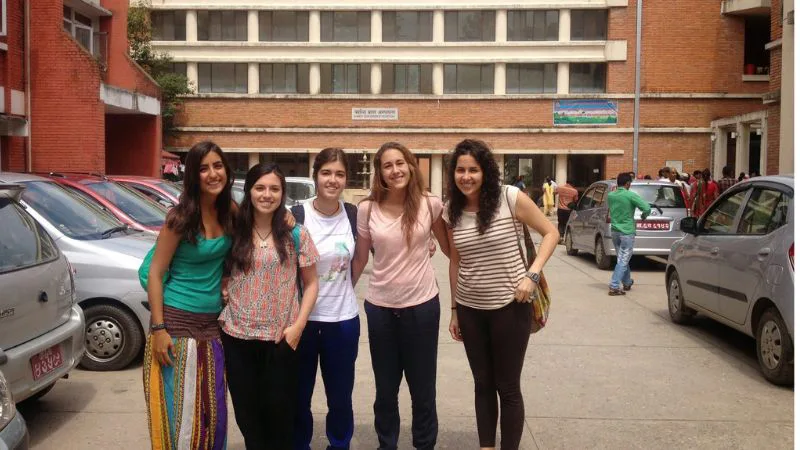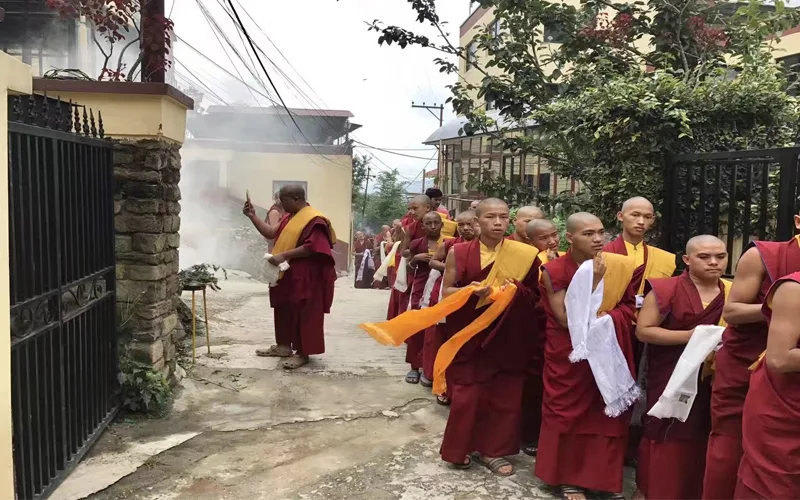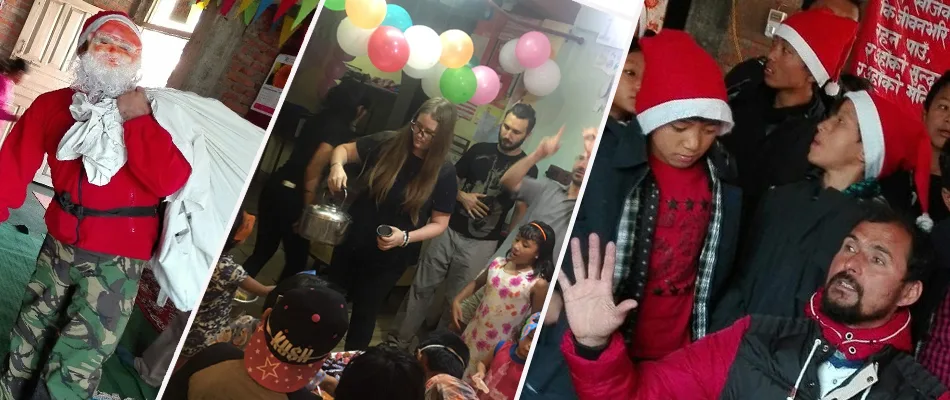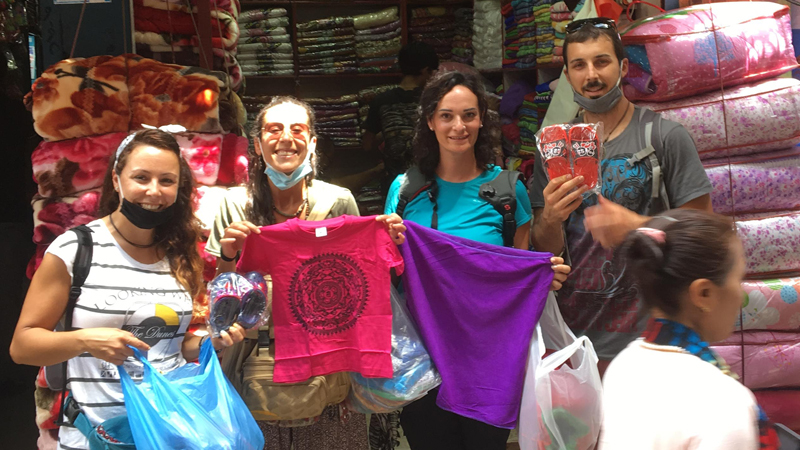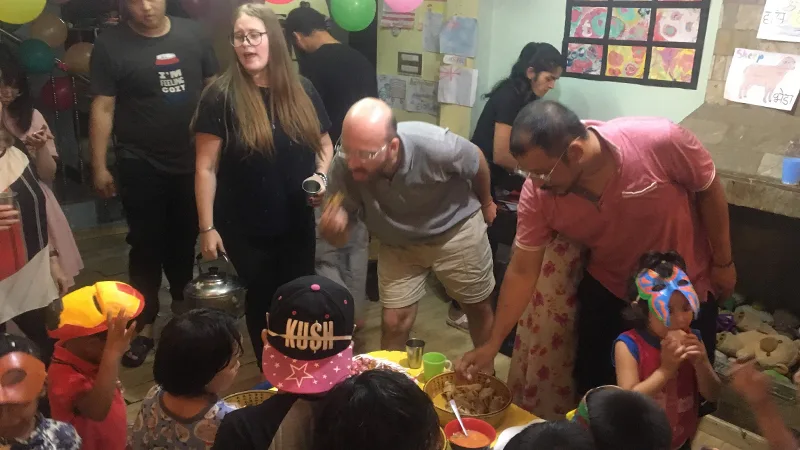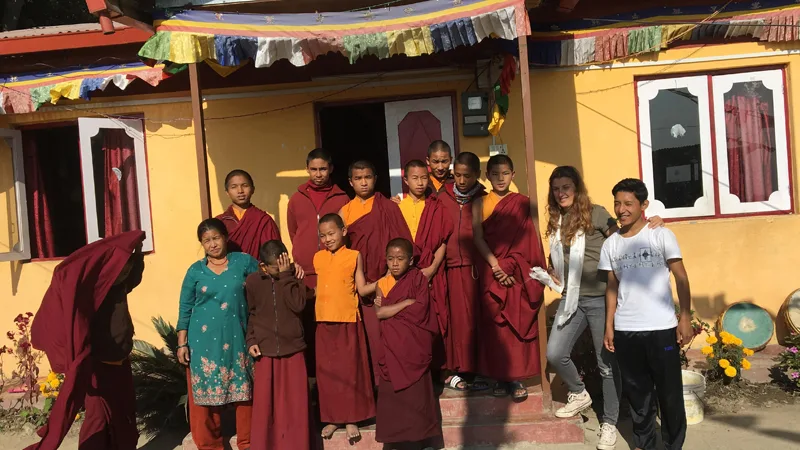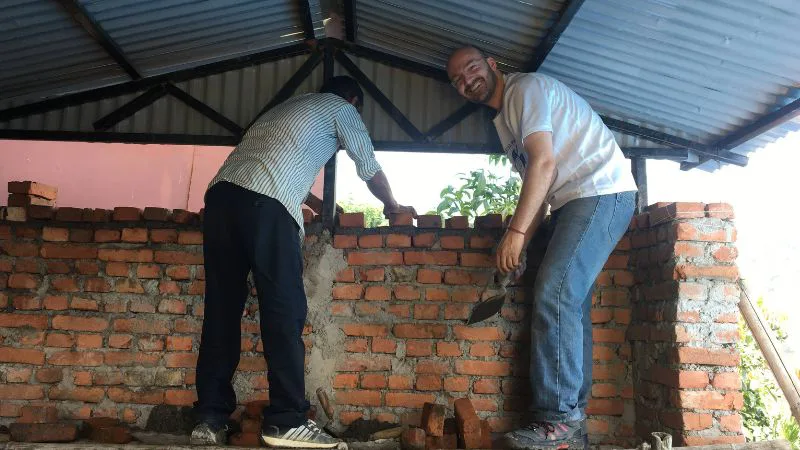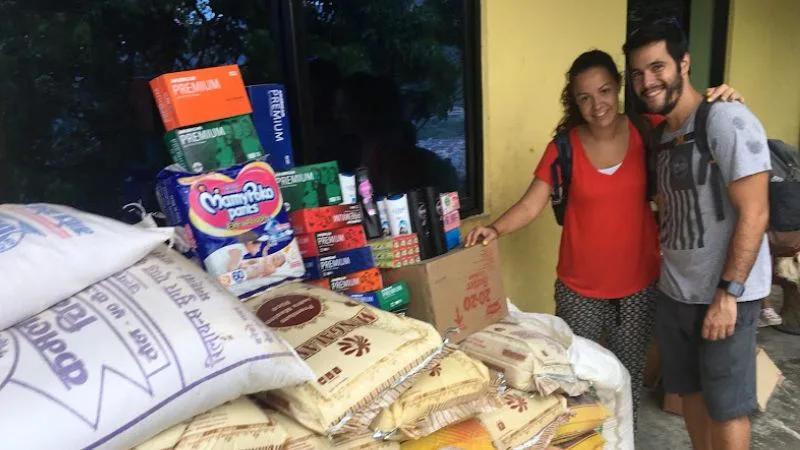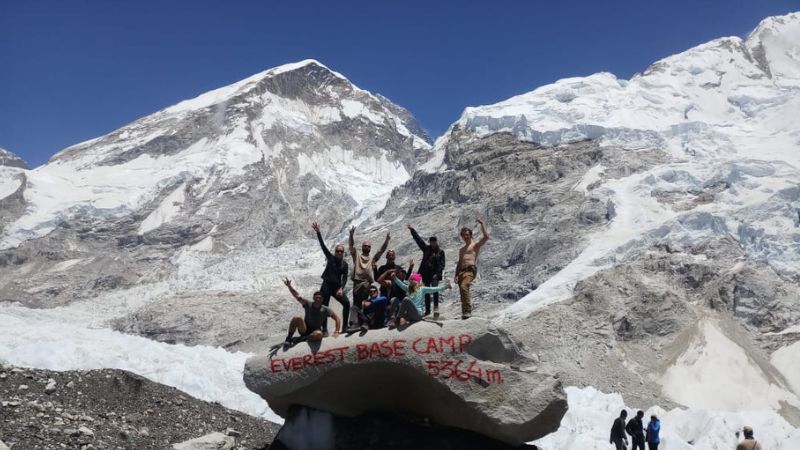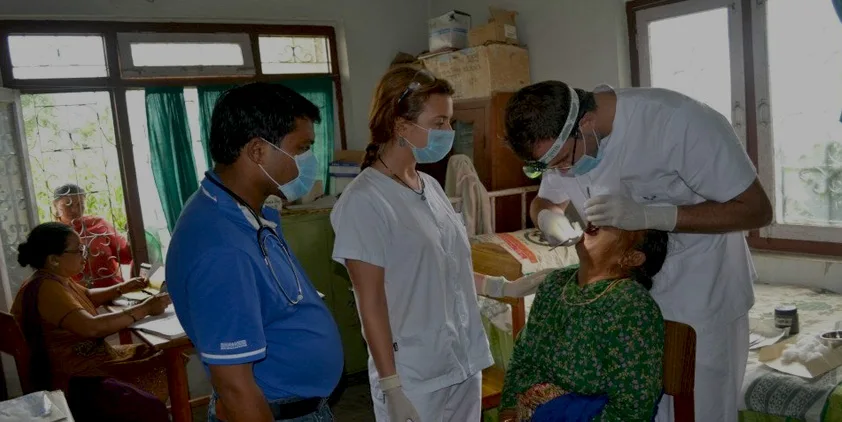Medical Internship Nepal inviter you to take your placement fi you are a medical students. Look no further than Nepal. Nestled in the majestic Himalayas, Nepal offers a unique and enriching experience for medical students seeking to broaden their horizons. Renowned for its breathtaking landscapes and rich cultural tapestry, Nepal also boasts a wealth of opportunities for medical learning and volunteering.
Immerse yourself in a diverse range of medical cases, from tropical diseases to unique cultural practices, providing a comprehensive understanding of global healthcare. Engage with local communities and witness the resilience and resourcefulness of Nepalese healthcare professionals. Gain invaluable insight and hands-on experience that will shape you into a more empathetic and adaptable healthcare provider.
Join us as we delve into the captivating tapestry of Nepal, exploring the compelling reasons why this remarkable country should sit atop your list for a medical internship experience. Discover the unparalleled rewards of immersing yourself in Nepal’s medical landscape, where learning extends far beyond the confines of a traditional classroom.
The Unique Benefits of Choosing Nepal for a Medical Internship
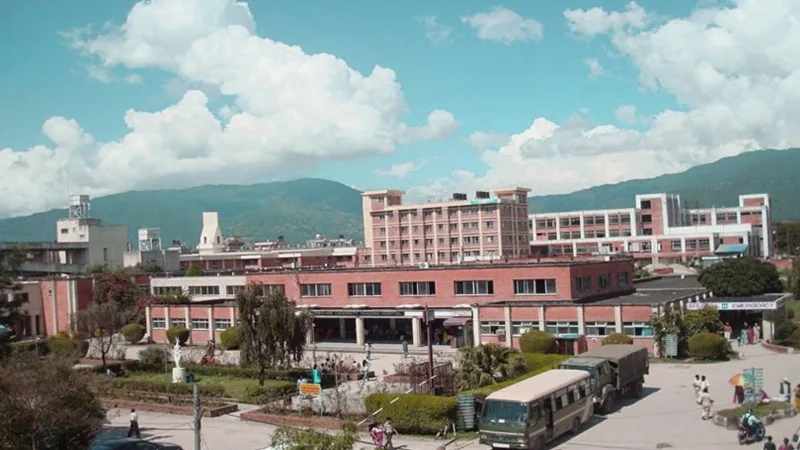
Nepal stands out as an exceptional destination for medical electives due to its diverse and challenging medical cases. From treating tropical diseases to encountering unique cultural practices, medical students in Nepal are exposed to a wide spectrum of healthcare scenarios. This hands-on experience provides a comprehensive understanding of global health challenges and equips students with the adaptability and empathy needed to become well-rounded healthcare professionals. Furthermore, Nepal’s healthcare system offers a stark contrast to western practices, providing a unique opportunity to learn from resourceful professionals working in challenging conditions.
Engaging with local communities in Nepal allows medical students to witness the resilience and resourcefulness of Nepalese healthcare professionals. By immersing themselves in the local culture, students gain a deeper appreciation for the social determinants of health and the impact of cultural practices on healthcare outcomes. This experiential learning goes beyond the confines of a traditional classroom, fostering a holistic understanding of healthcare that extends far beyond medical textbooks and lectures. The exposure to diverse medical cases and cultural experiences in Nepal enriches students’ perspectives and equips them with invaluable skills that cannot be taught within the walls of a university.
The cross-cultural exchange that occurs during a medical elective in Nepal provides an unparalleled opportunity for personal and professional growth. By interacting with patients and healthcare professionals from different backgrounds, students develop cross-cultural communication skills and a heightened awareness of global health disparities. These experiences are invaluable in shaping future healthcare providers into compassionate, culturally sensitive, and adaptable professionals who are equipped to address the complex challenges of an increasingly interconnected world.
—
Medical Facilities and Resources in Nepal
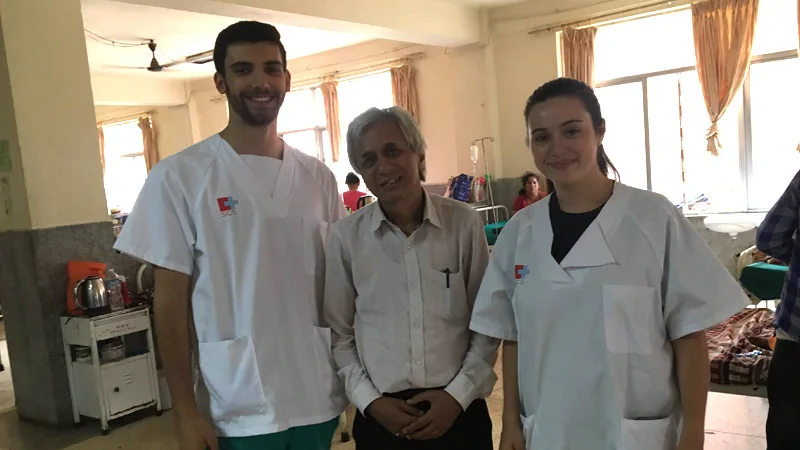
Nepal stands out as an exceptional destination for medical internships due to its diverse and challenging medical cases. From treating tropical diseases to encountering unique cultural practices, medical students in Nepal are exposed to a wide spectrum of healthcare scenarios. This hands-on experience provides a comprehensive understanding of global health challenges and equips students with the adaptability and empathy needed to become well-rounded healthcare professionals. Furthermore, Nepal’s healthcare system offers a stark contrast to western practices, providing a unique opportunity to learn from resourceful professionals working in challenging conditions.
Engaging with local communities in Nepal allows medical students to witness the resilience and resourcefulness of Nepalese healthcare professionals. By immersing themselves in the local culture, students gain a deeper appreciation for the social determinants of health and the impact of cultural practices on healthcare outcomes. This experiential learning goes beyond the confines of a traditional classroom, fostering a holistic understanding of healthcare that extends far beyond medical textbooks and lectures. The exposure to diverse medical cases and cultural experiences in Nepal enriches students’ perspectives and equips them with invaluable skills that cannot be taught within the walls of a university.
The cross-cultural exchange that occurs during a medical internship in Nepal provides an unparalleled opportunity for personal and professional growth. By interacting with patients and healthcare professionals from different backgrounds, students develop cross-cultural communication skills and a heightened awareness of global health disparities. These experiences are invaluable in shaping future healthcare providers into compassionate, culturally sensitive, and adaptable professionals who are equipped to address the complex challenges of an increasingly interconnected world.
Cultural and Experiential Aspects of Nepal
Taking a medical internship placement in Nepal is not only a professional endeavor but also a profound cultural experience. Nepal’s rich tapestry of traditions, festivals, and customs provides a captivating backdrop for students to immerse themselves in a vibrant and diverse society. Beyond the confines of clinical settings, students have the opportunity to explore ancient temples, majestic mountains, and serene monasteries, gaining a deeper understanding of Nepal’s cultural heritage and spiritual practices.
The warmth and hospitality of the Nepalese people create a welcoming environment for students, fostering meaningful connections and friendships that transcend geographical boundaries. Engaging with local communities and learning about their beliefs, traditions, and healthcare practices enriches the internship experience, fostering empathy and cultural competence. This cultural immersion not only enhances students’ personal growth but also equips them with the ability to provide patient-centered care to individuals from diverse backgrounds in their future careers.
—
Safety and Support for Medical Internship Nepal Students
Safety is a paramount concern for students considering a medical internship abroad, and Nepal prioritizes the well-being of international students participating in medical programs. Medical internship organizations in Nepal work closely with students to ensure a safe and secure experience, providing guidance on accommodation, transportation, and cultural adaptation. Additionally, these organizations offer comprehensive orientation programs that familiarize students with local customs, safety protocols, and healthcare regulations, enabling students to navigate their internship period with confidence and peace of mind.
The supportive network of healthcare professionals, mentors, and fellow students in Nepal creates a nurturing environment for students, fostering camaraderie and collaboration. Whether students are based in urban centers or rural communities, they can rely on the guidance and support of local healthcare providers who are dedicated to facilitating a rewarding and enriching internship experience. This sense of community and support enhances students’ sense of belonging and ensures that they can focus on their learning and professional development without undue concerns about their well-being.
—
Testimonials from Previous Medical Internship Participants in Nepal
The firsthand accounts of previous medical internship participants in Nepal offer compelling insights into the transformative nature of the experience. Many students express profound gratitude for the opportunity to witness the resilience and ingenuity of Nepalese healthcare professionals in the face of resource constraints. They highlight the immense personal and professional growth they experienced through their interactions with patients and healthcare providers, emphasizing the lasting impact of their internship experience on their career trajectories.
Testimonials often underscore the profound connections forged with local communities and the enduring friendships formed with fellow students and mentors. Students frequently share anecdotes of overcoming cultural and language barriers, gaining a deeper appreciation for global health challenges, and developing a newfound sense of empathy and cultural competence. These testimonials serve as a testament to the profound impact of a medical internship in Nepal, inspiring future students to embark on their own transformative journeys.
Tips for Planning Your Medical Internship Experience in Nepal
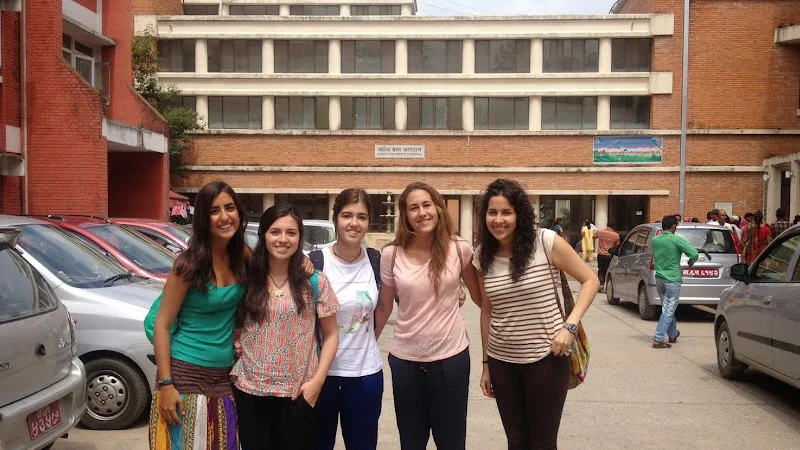
A medical internship in Nepal requires careful planning and preparation to ensure a smooth and rewarding experience. Researching reputable medical internship organizations in Nepal is crucial, as these organizations play a pivotal role in facilitating the logistics of the internship, securing clinical placements, and providing support throughout the duration of the program. Students are encouraged to engage in thorough communication with the selected organization to clarify expectations, accommodations, and safety measures.
Securing appropriate travel and health insurance is essential for students undertaking a medical internship in Nepal, providing financial protection and access to medical care in the event of unforeseen circumstances. Additionally, obtaining necessary vaccinations and adhering to health and safety guidelines recommended by healthcare professionals and the World Health Organization is imperative to safeguarding one’s well-being during the internship period. Students should also familiarize themselves with cultural norms and etiquette in Nepal, demonstrating respect and sensitivity towards the local customs and traditions.
—
Recommended Medical Internship Organizations in Nepal
Hands for Help Nepal offers structured medical internship programs in Nepal, providing students with a framework for a fulfilling and impactful experience. This organization collaborates with local hospitals, clinics, and healthcare providers to facilitate clinical placements, mentorship, and cultural immersion opportunities. Moreover, they offer comprehensive support services, including accommodation arrangements, language training, and logistical assistance, ensuring that students can focus on their learning and professional development.
When selecting a medical internship organization in Nepal, students are encouraged to evaluate the organization’s track record, testimonials from previous participants, and the scope of clinical exposure offered. A transparent and responsive communication channel with the organization is essential, as it enables students to address any queries or concerns and gain clarity on the logistics and expectations of the internship program. By partnering with reputable and established organizations, students can embark on their medical internship in Nepal with confidence and peace of mind.
Funding and Scholarships for Medical Internship in Nepal
Financial considerations should not deter aspiring medical students from pursuing an internship experience in Nepal. Several funding opportunities and scholarships are available to support students in covering the costs associated with their internship, including travel, accommodation, and program fees. Universities, philanthropic organizations, and governmental bodies often offer scholarships and grants specifically tailored to medical students undertaking overseas internships, enabling students to pursue their academic and professional aspirations without financial constraints.
Students are encouraged to explore diverse funding avenues, including institutional scholarships, research grants, and crowd funding platforms, to secure the financial resources needed for their internship in Nepal. Additionally, seeking guidance from academic advisors, career counselors, and scholarship coordinators can provide valuable insights and support in navigating the complex landscape of funding opportunities. By proactively researching and applying for available funding, students can alleviate the financial burden associated with their internship and fully embrace the transformative learning opportunities offered in Nepal.
